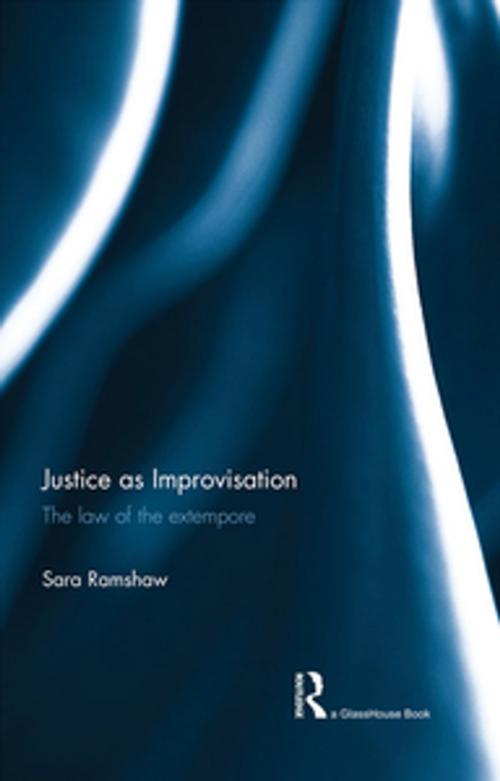Justice as Improvisation
The Law of the Extempore
Nonfiction, Reference & Language, Law, Entertainment, Jurisprudence, History, Americas, United States| Author: | Sara Ramshaw | ISBN: | 9781135102777 |
| Publisher: | Taylor and Francis | Publication: | March 5, 2013 |
| Imprint: | Routledge | Language: | English |
| Author: | Sara Ramshaw |
| ISBN: | 9781135102777 |
| Publisher: | Taylor and Francis |
| Publication: | March 5, 2013 |
| Imprint: | Routledge |
| Language: | English |
Justice as Improvisation: The Law of the Extempore theorises the relationship between justice and improvisation through the case of the New York City cabaret laws. Discourses around improvisation often imprison it in a quasi-ethical relationship with the authentic, singular ‘other’. The same can be said of justice. This book interrogates this relationship by highlighting the parallels between the aporetic conception of justice advanced by the late French philosopher Jacques Derrida and the nuanced approach to improvisation pursued by musicians and theorists alike in the new and emerging interdisciplinary field of Critical Studies in Improvisation (CSI). Justice as Improvisation re-imagines justice as a species of improvisation through the formal structure of the most basic of legal mechanisms, judicial decision-making, offering law and legal theory a richer, more concrete, understanding of justice. Not further mystery or mystique, but a negotiation between abstract notions of justice and the everyday practice of judging. Improvisation in judgment calls for ongoing, practical decision-making as the constant negotiation between the freedom of the judge to take account of the otherness or singularity of the case and the existing laws or rules that both allow for and constrain that freedom. Yes, it is necessary to judge, yes, it is necessary to decide, but to judge well, to decide justly, that is a music lesson perhaps best taught by critical improvisation scholars.
Justice as Improvisation: The Law of the Extempore theorises the relationship between justice and improvisation through the case of the New York City cabaret laws. Discourses around improvisation often imprison it in a quasi-ethical relationship with the authentic, singular ‘other’. The same can be said of justice. This book interrogates this relationship by highlighting the parallels between the aporetic conception of justice advanced by the late French philosopher Jacques Derrida and the nuanced approach to improvisation pursued by musicians and theorists alike in the new and emerging interdisciplinary field of Critical Studies in Improvisation (CSI). Justice as Improvisation re-imagines justice as a species of improvisation through the formal structure of the most basic of legal mechanisms, judicial decision-making, offering law and legal theory a richer, more concrete, understanding of justice. Not further mystery or mystique, but a negotiation between abstract notions of justice and the everyday practice of judging. Improvisation in judgment calls for ongoing, practical decision-making as the constant negotiation between the freedom of the judge to take account of the otherness or singularity of the case and the existing laws or rules that both allow for and constrain that freedom. Yes, it is necessary to judge, yes, it is necessary to decide, but to judge well, to decide justly, that is a music lesson perhaps best taught by critical improvisation scholars.















